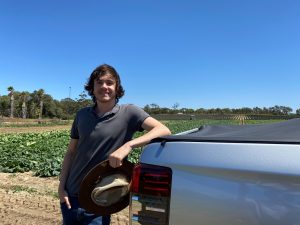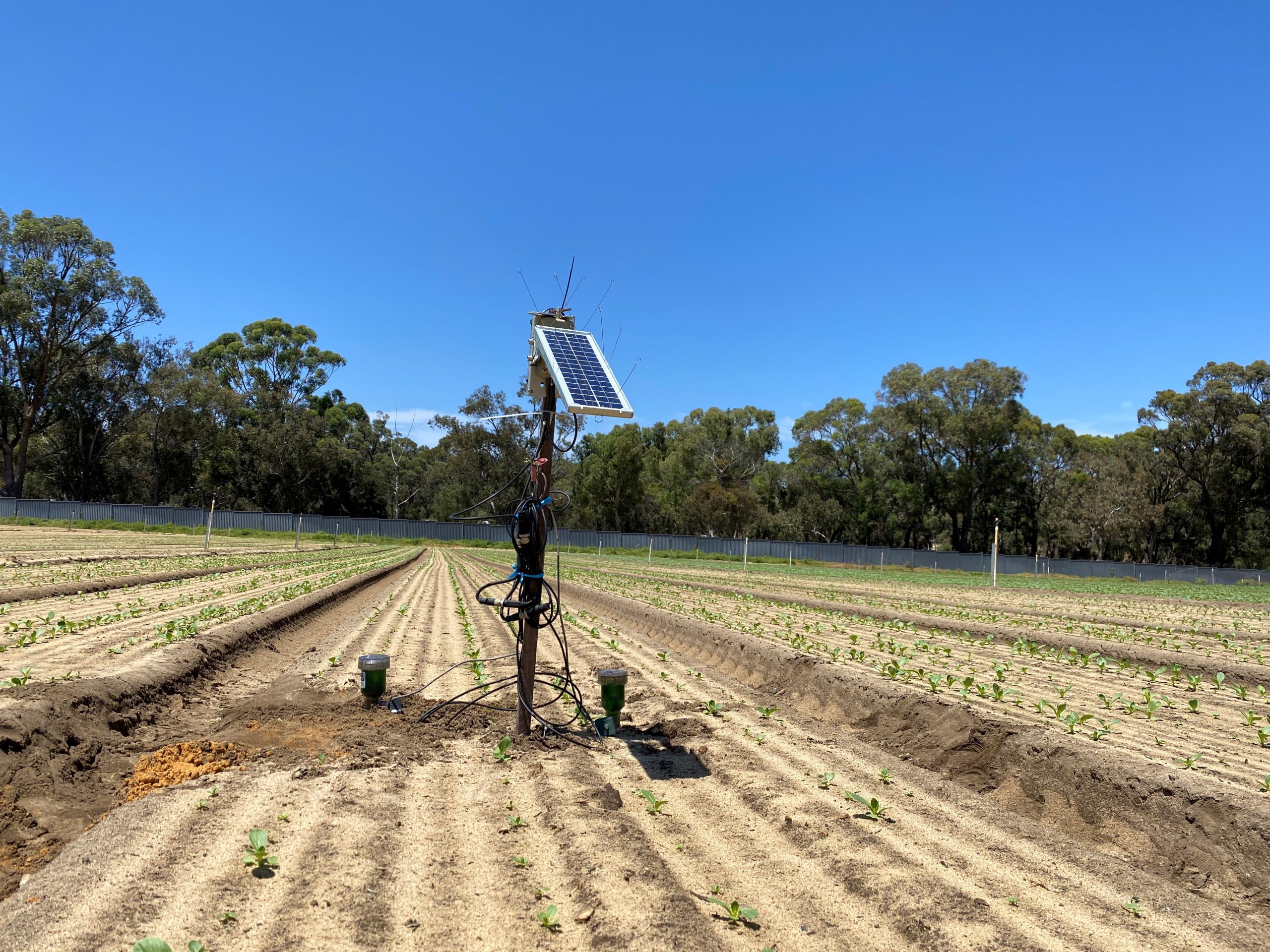Helping to build resilient Western Australian vegetable production systems
Working in collaboration with vegetablesWA and AUSVEG, Western Australia’s new Regional Development Officer Michael Bartholomew introduces himself to readers and highlights the priority focus areas for VegNET 3.0 in the west.
We all know the agriculture paradigm: challenges are getting larger, threats are getting closer, work’s getting harder, and margins are getting smaller.
Applied to an industry like mining for example, this would be signalling impending doom – but not for agriculture. Australian agriculture’s resilience in the face of these dynamic challenges has been a proven fact since its beginning.
Regional development and extension programs are nothing new, but with significance of a safe and reliable food supply being of unsurpassed importance in the face of population growth, climate change and economic competition; these programs are only set to get bigger and better with time.

Personified problem solving
A big step forward in the development of these crucial extension services is VegNET 3.0 and its national team of Regional Development Officers (RDOs), a team of which I am pleased to be a part of.
Holding a Bachelor of Agribusiness from Curtin University and having been exposed to diverse agricultural systems my entire life, I am looking forward to further developing and evolving my knowledge and to share it with those around me.
Based at vegetablesWA, I will be working closely with Truyen Vo to be brought up to speed with the extension projects and share in the enormous network he has spent so long building. This is so I can hit the ground running and make an impact where it’s needed most.
Backed by an enormous network of highly experienced individuals, I’m set to be spending long days applying my up-to-date knowledge of local and global agricultural systems to deliver comprehensive and individualised support to the Western Australian horticulture industry. This is all in addition to sharing my findings with the network of RDOs around the country, and I can’t think of anything more fulfilling.
On my desk right now are three projects. But over time these will grow, change and adapt to the most important and pressing matters facing WA growers. Here’s a little about each.
Water and fertiliser use efficiency
Large discrepancies in water use have been observed across farms in the same growing regions with very little difference in yield. As fertigation is a key form of nutrient application in these growing regions, the unoptimised use of water extends to costly fertiliser wastage.
Pressures from recent groundwater restrictions and increasing operating costs have seen this as a priority development area. Maximising water use efficiency is now not only financially and environmentally important, but legally. Preliminary actions have included the deployment of soil moisture sensors and analysis of management techniques to better understand the scale of the issue on individual farms.
Plant protection and biosecurity management
Highlighting the synergy between proactive and reactive management comes the differences between pest and disease management and biosecurity.
Cucumber green mottle mosaic virus, tomato-potato psyllid and fall armyworm have been recent biosecurity concerns in WA growing regions. Our initial findings indicate that more can be done to proactively prevent the incursion of new pests and disease, with too much of the balance of focus being applied to reactive management approaches once the damage is already done.
We are working to arm growers with the means and resources to develop and integrate biosecurity plans into their production systems to minimise the risk surface to the whole industry.
Communication
The triple bottom line of agriculture has such a dynamic impact on its functioning and can have enormous implications for business if not handled correctly.
The most important tool in managing these externalities is communication – communication between growers, RDOs, industry, politics, and society. The complexity of these networks means that often the required information (such as emergency weather, market, and biosecurity updates) is not often passed on efficiently enough to reach their target in time.
Strengthening these knowledge transfer pathways and building new ones are at the forefront of this project.
Find out more
For more information, please contact VegNET – Western Australia Regional Development Officer Michael Bartholomew on 0427 373 037 or email michael.bartholomew@vegetableswa.com.au.
VegNET 3.0 is a strategic levy investment under the Hort Innovation Vegetable Fund.
This project has been funded by Hort Innovation using the vegetable research and development levy and contributions from the Australian Government.
Project Number: VG21000
Cover image: WildEye soil moisture and tensiometer installed at a grower’s property in Carabooda, WA.

